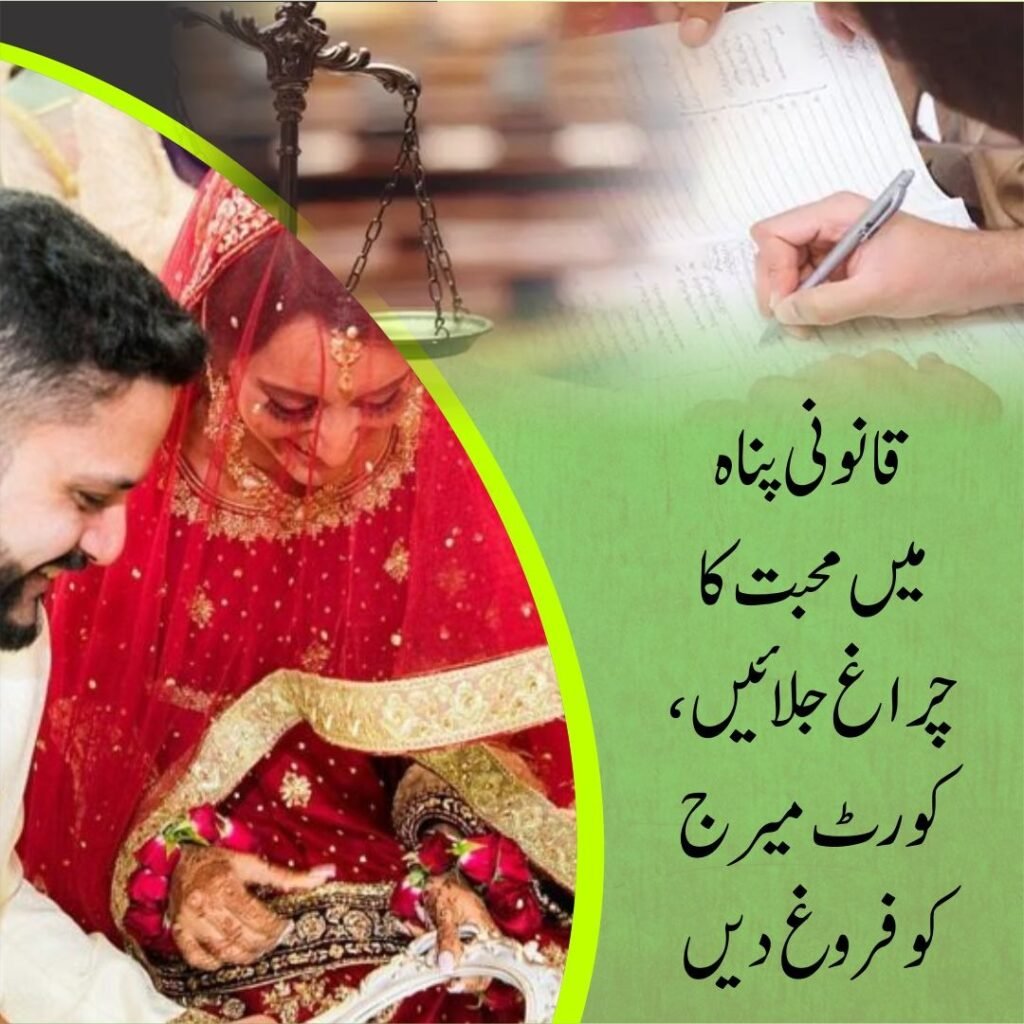Court Marriage: Promoting Progressive Relationships in Pakistan
During a court marriage, couples in Pakistan are able to solemnize their union under the supervision of a lawyer or magistrate. This alternative approach to marriage promotes progressive relationships, empowering individuals to exercise their right to choose their life partners based on their own free will. In this blog, we will delve into the concept of court marriage and explore how it contributes to fostering progressive relationships in Pakistan.
Embracing Autonomy: The Essence of Court Marriage
Court marriage is grounded in the principle of individual autonomy. It provides couples with the freedom to make independent choices regarding their life partners without being restricted by societal norms or family pressures. This autonomy empowers individuals to form relationships based on shared values, compatibility, and mutual respect, promoting healthier and more fulfilling unions.
Court Marriage: Equality and Inclusiveness
Court marriage breaks barriers by promoting equality and inclusivity in relationships. Regardless of gender, religion, caste, or social background, court marriage provides a platform for couples to unite and be recognized under the law. It dismantles discriminatory practices and fosters an environment where all individuals are treated with equal respect and dignity.
Overcoming Cultural Constraints: The Role of Court Marriage
Court marriage enables couples to overcome cultural constraints that may hinder their pursuit of love and happiness. In a society where arranged marriages are prevalent, court marriage offers an alternative avenue for couples to embark on their journey of togetherness. It encourages the exploration of emotional compatibility and shared values, allowing individuals to build relationships on a foundation of mutual understanding and love.
Breaking Free from Stigma: The Social Impact of Court Marriage
Court marriage challenges societal stigmas surrounding love and relationships. By opting for court marriage, individuals send a powerful message that love knows no boundaries and should not be subjected to judgment or discrimination. This progressive approach encourages society to redefine its perspectives on relationships and embrace the diversity of love.
Legal Protection: Safeguarding Couples’ Rights
One of the significant advantages of court marriage is the legal protection it provides to couples. By obtaining a court-issued marriage certificate, couples secure their rights and entitlements under the law. This includes legal recognition of the marriage, access to spousal benefits, and protection against unfair treatment or discrimination. Court marriage empowers couples to navigate legal matters with confidence and ensures their union is legally acknowledged and protected.
Celebrating Love: The Intimacy of Court Marriage
Court marriage offers an intimate and personal way to celebrate love and commitment. Unlike elaborate wedding ceremonies, court marriages focus on the essence of the union rather than extravagant displays. This simplicity allows couples to prioritize their connection and the promises they make to one another, fostering a deep sense of emotional intimacy that forms the bedrock of lasting relationships.
Encouraging Open Communication: Key to Successful Court Marriages
Successful court marriages thrive on open and honest communication between partners. The process of court marriage necessitates discussions on important matters such as expectations, shared values, and future plans. This emphasis on communication establishes a solid foundation for understanding and cooperation, enabling couples to navigate challenges and nurture their relationship effectively.
Uniting Families: Court Marriage as a Catalyst for Change
Court marriage has the potential to bridge divides between families and foster a sense of acceptance. As more individuals opt for court marriage, families are prompted to challenge traditional norms and prejudices. This shift in mindset promotes dialogue and understanding, paving the way for acceptance and unity among families of different backgrounds and beliefs.
Progressive Parenting: Nurturing Children in Court Marriage Unions
Court marriages provide a progressive environment for parenting. By consciously choosing their partners, couples in court marriages can create a nurturing environment for their children. These relationships are built on mutual respect, equality, and shared values, offering a positive model of parenting that encourages children to embrace diversity and make independent choices based on their own aspirations.
Empowering Individuals: The Legacy of Court Marriage
Court marriage empowers individuals to take control of their lives and relationships. It encourages self-determination, resilience, and the pursuit of personal happiness. By choosing court marriage, individuals become agents of change, inspiring others to challenge societal norms and embrace progressive values. The legacy of court marriage lies in its ability to create a society where love, respect, and individual choice are valued above all else.
Court Marriage: A Significant Shift Towards Progressive Relationships
Court marriage in Pakistan represents a significant shift towards progressive relationships, promoting individual autonomy, equality, and inclusivity. By embracing court marriage, couples break free from cultural constraints, challenge societal stigmas, and celebrate love on their own terms. This alternative approach fosters open communication, unites families, and empowers individuals to shape their own destinies. As court marriages become more prevalent, Pakistan moves towards a future where love is valued, relationships are based on mutual respect and personal happiness is prioritized. Court marriage stands as a testament to the progressive spirit of the nation, paving the way for a more inclusive and accepting society.

Some Useful Links of the Top Court Marriage Sites in Pakistan
- Court Marriage Procedure
- Court Marriage in Pakistan
- Family Lawyers For Court Marriage
- Court Marriage & Online Shadi
- Court Marriage Rules
- Court Marriage in Islamabad
- Court Marriage Law
- Court Marriage Process
- Court Marriage Rawalpindi
- Court Marriage Nikah Nama
- Court Marriage Live
- Court Marriage-Civil Marriage

